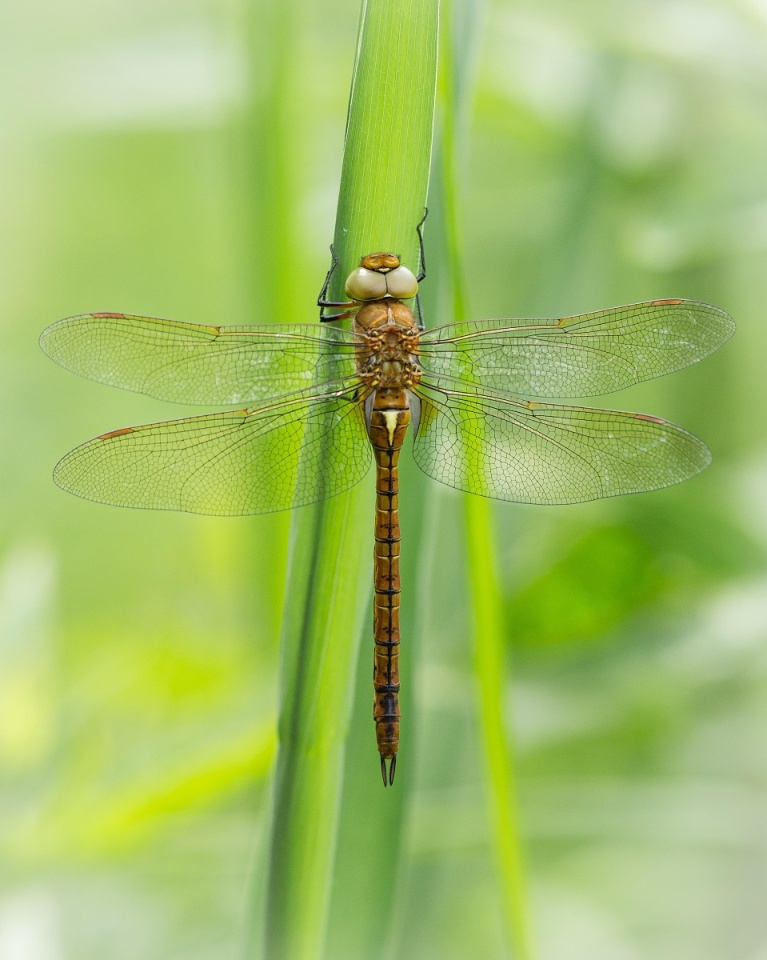Norfolk Hawker
A really excellent day out to the Norfolk Broads, this time visiting Martham Broad NNR. This little known site has very limited visitor access, and Chris had to get ferried across in a boat to do his survey in an area where they were cutting sedge commercially. Pete and I stayed on the public footpath to the south, which had some accessible areas of fen. There were plenty of swallowtails, much better behaved than at Hickling Broad, and at one point Pete nearly stepped on a bittern! I must have been standing about 20m from it for some time, watching for Norfolk Hawkers, but it was completely invisible among the reeds. Unfortunately I couldn't get a clear view as it flew off - too many reed stems!
I'd almost given up on photographing a Norfolk Hawker, when Pete found one fluttering in the vegetation. We think it may have been injured by a bird strike, perhaps a hobby which specialise in hunting dragonflies. We put it on a safe reed stem and it posed nicely for a set of photographs.
This species (along with swallowtail)is one of the few fully protected species of invertebrate in the UK. It is usually seen patrolling ditches in East Anglian grazing marshes and appears to be dependent on ditches containing water soldier, a curious aquatic plant which is very sensitive to eutrophication and, as a native species, is largely confined to the Broads. It is one of only two brown hawker dragonflies in the UK, and can be distinguished by its green eyes (rather pale in this specimen), its largely clear wings and the yellow triangle on its second abdominal segment, which gives the species its specific name Aeshna isosceles.
Once Chris had completed his survey we had a very civilised cup of tea at Horsey Windmill, and then headed off to Winterton to spend an hour or so on the dunes. Pete was hunting for a rare bug on lady's bedstraw, not seen in Britain for many years, and I just enjoyed the flora of the acid dunes, including a very large population of grey hair-grass Corynephorus canescens and a smaller population of rush-leaved fescue Festuca arenaria, a species I'd not come across before.
We had an easy journey home and arrived back to the lovely smell of cooking. Alex and Ben had produced some delicious Arabian spiced lamb with flat-bread, the first time that they've cooked a meal for us entirely alone. They were a bit unsure about whether they were up to it, but rose to the challenge. It was delicious!
- 12
- 3
- Canon EOS 6D
- f/7.1
- 300mm
- 640


Comments
Sign in or get an account to comment.


